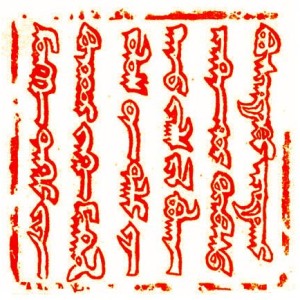I have been thinking a lot lately about the future of society and where our current pace of frantic technological innovation is taking us and the ever increasing degradation of society due to the poisoning of our world. The next several posts will build off of this basic topic, asking the question of what does the future hold and how can we get there in one piece? I recently read an outstanding book, The Wayfinders by Wade Davis, that I wanted to share to kick off the subject of the future by thinking about the past.
When you look at the stars at night, what do you see? Do you see little beads of light or points on a navigational compass? When you walk through the forest so you see the trees or an entire ecosystem providing food and medicine for your survival? The Wayfinders offers a glimpse into the world of indigenous cultures and their view of nature. In recent years, the discussion in the scientific and political communities about global warming informed the public of the possible dangers of a planet under stress. Wade Davis provides answers to the global warming crises if we are willing to listen to the wisdom of the ancients.
Davis takes the reader on a global spanned adventure, visiting indigenous cultures in the Amazon, the African desert, the Australian Outback, and the Pacific Islands. The descriptions of each culture allow the reader to begin sensing the basics of the culture and the plight modern industrialization and capitalism have wrought on their homelands. Like the Penan in Borneo, a culture so interconnected within their community that no word exists for the expression: thank you. There is a communal obligation for sharing inherent in the culture. The Penan culture is being threatened by the logging industry and the government efforts to relocate this forest dwelling people to the modern cities. Cultures around the world are being threatened with relocation and extinction in the name of modernity.
What is at risk if these threatened cultures disappear? These cultures are part of the human legacy and Davis further argues that we have an obligation of preservation due to our connection to common ancestry; a common ancestry shared by the whole of the human race. Davis’ book offers a glimpse into the culture of the indigenous cultures and allows the reader to examine their own practices and biases against the philosophy and wisdom of the ancients still practiced and preserved among these indigenous cultures.
The book has really caused me to consider what I know and my place in the world. Especially thinking about how to learn and preserve the traditions of the past that may assist the building of a better future. No, I do not seek to return to the forest for hunting and gathering, but I do think there are lessons from the past we need to learn, like how to live in harmony with nature. This book allowed me to glimpse cultural ideas being lost to the world. In concert with this book review of sorts, I also wrote a poem called the Carnival of Curiosities. I can’t post it here because I have submitted it for publication (cross your fingers). But the idea is that the world is losing precious knowledge, knowledge and traditions that cannot be retrieved once claimed by the abyss. Did you know there is a website created by UNESCO that lists cultural traditions endangered by extinction (here is the link). Think of the endangered species list for cultural traditions. Did you know that Mongolian calligraphy is an endangered art?
Beautiful isn’t it?
There is so much of beauty in the world and yet many of us are more concerned with our email and social media sites. Ancient cultures were more in tune with nature and with cultural traditions. These traditions connected a community and transformed civilization. Without cultural traditions, the strings of connectivity begin to unravel. I am not planning on learning Mongolian calligraphy, but the attitude of preserving cultural traditions, of preserving the beauty of the earth and connecting with that energy will help to take us to the next level.
